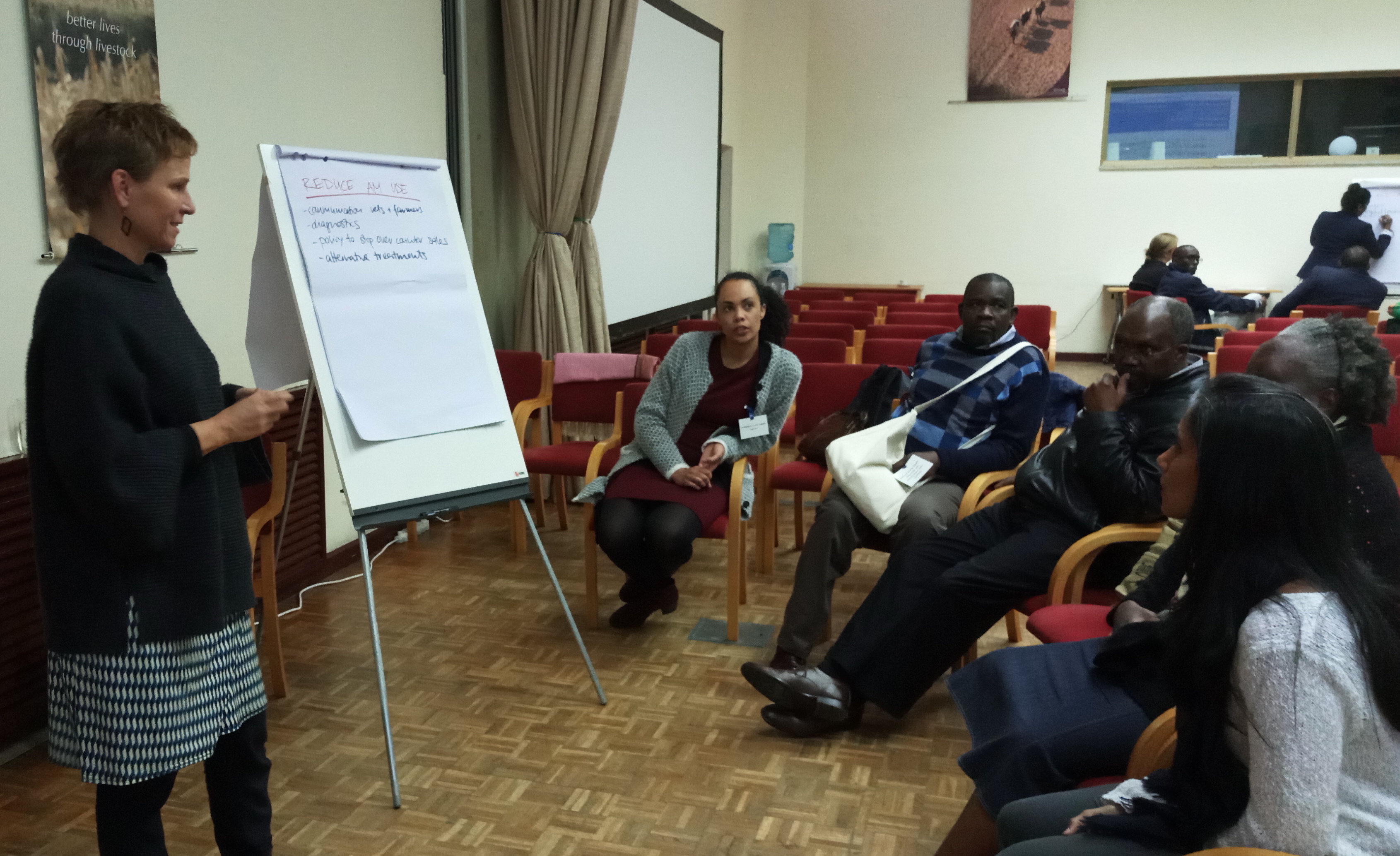
Written by Ekta Patel
Addis Ababa, Ethiopia- 17-19 September 2019, International Livestock Research Institute’s Planning Meeting was filled with various story tellers who embark on their journey to display how livestock played a role in their lives which tied in well with ILRI’s critical success factors. In addition to the stories, were parallel sessions where individuals from all divisions were free to participate. One such session was conducted on addressing a global problem - Antimicrobial Resistance (AMR) to ILRI staff who may not be directly involved with AMR research activities nor understand the role of the CGIAR AMR hub.
Lead scientists presented a One Health approach to support the efforts of low- and middle-income countries to control agricultural associated AMR risks by facilitating and promoting trans-disciplinary partnerships which are the very heart of the strategy and critical for success founded on the five pillars. Through role play, participants had the opportunity to think through the main challenges on AMR by listening to the views from different stakeholders, discussing the role of the CGIAR AMR hub, broadly review the current and on-going research activities at partner institutes and address how these activities at ILRI and their partner organizations contribute towards achieving the goals and lastly address how the CGIAR AMR hub success could be measured.
Participants broke into three separate groups for constructive discussions and interestingly two messages resonated amongst all three groups which were the need to carry out baseline analysis and essentially carry out AMR surveillance of sorts to understand the extent of the problem in the various environments and interfaces between human and animals, and secondly need for regulatory bodies, governments and or respective ministries to be involved in rolling out policies which could lead to behavioral change.